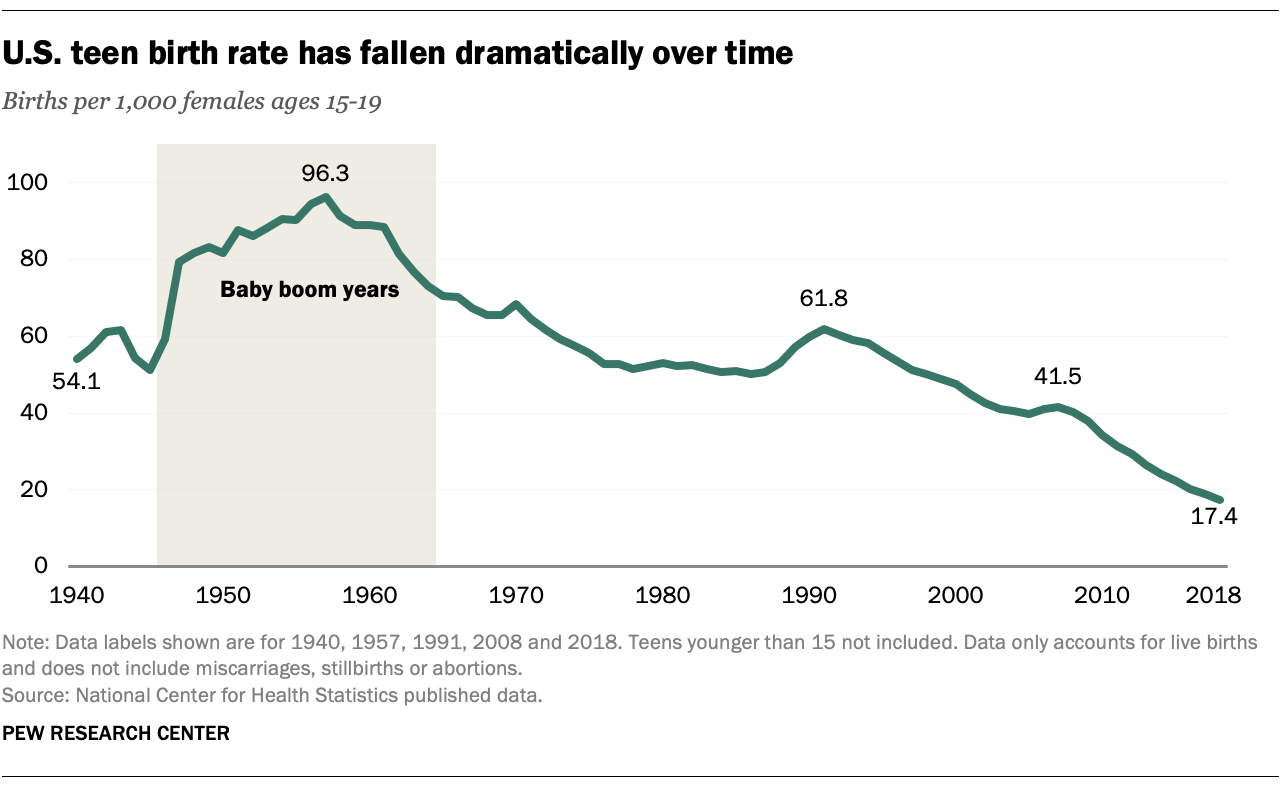
Teen Pregnancy Rates: A Complex Issue with Far-Reaching Consequences
Teen pregnancy remains a prevalent issue in the United States, with significant implications for the health and well-being of young women, their children, and society as a whole. Despite decades of efforts to reduce teen pregnancy rates, the United States continues to have one of the highest rates among developed countries.
Defining Teen Pregnancy
Teen pregnancy is defined as a pregnancy that occurs in a female under the age of 20. It is often categorized into two groups:
- Early teen pregnancy: Occurs in girls under the age of 15
- Late teen pregnancy: Occurs in girls between the ages of 15 and 19
Prevalence and Trends
According to the Centers for Disease Control and Prevention (CDC), the teen pregnancy rate in the United States has declined significantly since the early 1990s. However, the rate remains higher than in many other developed countries. In 2020, the birth rate for teenagers aged 15-19 was 18.8 per 1,000, compared to 1.6 per 1,000 for women aged 20-24.
Factors Contributing to Teen Pregnancy
The causes of teen pregnancy are complex and multifaceted, involving a combination of individual, social, and economic factors. Some of the key contributing factors include:
- Lack of access to comprehensive sex education: Many teens lack accurate information about sexual health and contraception, which can lead to unintended pregnancies.
- Peer pressure and social norms: Teens may feel pressured to engage in sexual activity to fit in or gain acceptance from their peers.
- Poverty and economic disadvantage: Teens from low-income families may face greater challenges in accessing healthcare, education, and other resources that can help prevent pregnancy.
- Trauma and abuse: Teens who have experienced trauma or abuse are at an increased risk for teen pregnancy.
Consequences of Teen Pregnancy
Teen pregnancy can have significant consequences for both the young mother and her child.
For the Young Mother:
- Health risks: Teen mothers are at higher risk for pregnancy complications, such as premature birth, low birth weight, and postpartum depression.
- Educational attainment: Teen mothers are less likely to complete high school and pursue higher education, which can limit their economic opportunities.
- Economic challenges: Teen mothers often face financial difficulties, as they may have to balance childcare responsibilities with work or school.
For the Child:
- Health problems: Children of teen mothers are more likely to have low birth weight, developmental delays, and chronic health conditions.
- Educational challenges: Children of teen mothers are more likely to experience academic difficulties and drop out of school.
- Social and emotional problems: Children of teen mothers may face social stigma and have difficulty forming healthy relationships.
Societal Impact
Teen pregnancy also has significant implications for society as a whole:
- Increased healthcare costs: Teen pregnancy and its associated complications can place a strain on the healthcare system.
- Lost productivity: Teen mothers are less likely to be employed and contribute to the economy.
- Intergenerational poverty: Teen pregnancy can perpetuate cycles of poverty, as children of teen mothers are more likely to experience economic and social challenges.
Prevention Strategies
Preventing teen pregnancy requires a comprehensive approach that addresses the underlying factors that contribute to it. Effective prevention strategies include:
- Comprehensive sex education: Providing teens with accurate information about sexual health, contraception, and decision-making skills.
- Access to contraception: Ensuring that teens have access to affordable and confidential contraception.
- Economic empowerment: Supporting programs that help teens develop economic stability and reduce poverty.
- Trauma-informed care: Providing support and services to teens who have experienced trauma or abuse.
- Community engagement: Involving parents, educators, and community organizations in efforts to prevent teen pregnancy.
Conclusion
Teen pregnancy is a complex issue with far-reaching consequences for young women, their children, and society. Addressing this issue requires a multi-faceted approach that involves providing comprehensive sex education, access to contraception, economic empowerment, and trauma-informed care. By investing in teen pregnancy prevention, we can improve the health and well-being of young people and break the cycle of intergenerational poverty.